THE INSTANT #1 NEW YORK TIMES BESTSELLER • A Wall Street Journal Top 10 Book of 2024 • A New York Times and Washington Post Notable Book • One of Barack Obama's Favorite Books of 2024 • A TIME 100 Must-Read Book of 2024 • Named a Best Book of 2024 by the Economist, the New York Post, and Town & Country • The Goodreads Choice Award Nonfiction Book of the Year • Finalist for the PEN Literary Awards A must-read for all parents: the generation-defining investigation into the collapse of youth mental health in the era of smartphones, social media, and big tech—and a plan for a healthier, freer childhood. “With tenacity and candor, Haidt lays out the consequences that have come with allowing kids to drift further into the virtual world . . . While also offering suggestions and solutions that could help protect a new generation of kids.” —Shannon Carlin, TIME, 100 Must-Read Books of 2024 After more than a decade of stability or improvement, the mental health of adolescents plunged in the early 2010s. Rates of depression, anxiety, self-harm, and suicide rose sharply, more than doubling on many measures. Why? In The Anxious Generation, social psychologist Jonathan Haidt (pronounced "height") lays out the facts about the epidemic of teen mental illness that hit many countries at the same time. He then investigates the nature of childhood, including why children need play and independent exploration to mature into competent, thriving adults. Haidt shows how the “play-based childhood” began to decline in the 1980s, and how it was finally wiped out by the arrival of the “phone-based childhood” in the early 2010s. He presents more than a dozen mechanisms by which this “great rewiring of childhood” has interfered with children’s social and neurological development, covering everything from sleep deprivation to attention fragmentation, addiction, loneliness, social contagion, social comparison, and perfectionism. He explains why social media damages girls more than boys and why boys have been withdrawing from the real world into the virtual world, with disastrous consequences for themselves, their families, and their societies. Most important, Haidt issues a clear call to action. He diagnoses the “collective action problems” that trap us, and then proposes four simple rules that might set us free. He describes steps that parents, teachers, schools, tech companies, and governments can take to end the epidemic of mental illness and restore a more humane childhood. Haidt has spent his career speaking truth backed by data in the most difficult landscapes—communities polarized by politics and religion, campuses battling culture wars, and now the public health emergency faced by Gen Z. We cannot afford to ignore his findings about protecting our children—and ourselves—from the psychological damage of a phone-based life.
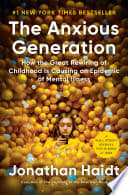
Average Rating
Informations
About the author
Jonathan Haidt
Author
Jonathan David Haidt is an American social psychologist and author. He is the Thomas Cooley Professor of Ethical Leadership at the New York University Stern School of Business. Haidt's main areas of study are the psychology of morality and moral emotions.
The Anxious Generation
by Jonathan Haidt
Books Like The Anxious Generation
If you're looking for books similar to The Anxious Generation, here are some recommendations based on themes, tone, and narrative style.
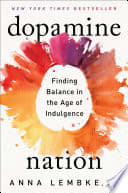
Dopamine Nation
Anna Lembke
A deep dive into how modern technology and instant gratification rewire brain chemistry and contribute to addiction. Lembke explores the neurological impacts of constant digital stimulation on mental health and personal well-being. The book provides scientific insights into how digital platforms manipulate reward systems. It offers strategies for managing digital addiction and restoring psychological balance.
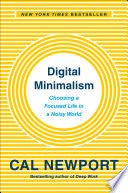
Digital Minimalism
Cal Newport
A groundbreaking exploration of how technology impacts modern life and mental health. Newport provides a strategic approach to reclaiming personal focus and reducing digital dependency. The book offers practical strategies for creating healthier relationships with technology and digital devices. It challenges readers to be intentional about their digital consumption and prioritize meaningful human interactions.
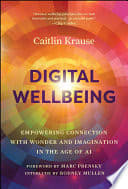
Humane Tech
Tristan Harris
An exploration of technology's ethical design and its psychological implications. Harris examines how digital platforms are engineered to capture and manipulate human attention. The book provides insights into creating more responsible technological ecosystems. It offers a critical perspective on designing technologies that support human well-being.
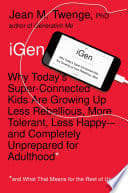
iGen
Jean Twenge
A comprehensive study of the generation growing up with smartphones and social media. Twenge examines the profound psychological and social changes affecting young people in the digital age. The research reveals significant shifts in mental health, social interactions, and personal development. It provides critical insights into the generational impacts of technology on adolescent experiences.
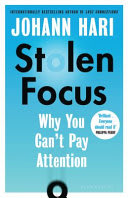
Stolen Focus
Johann Hari
An in-depth investigation into the modern crisis of diminishing human attention and concentration. Hari explores how digital technologies fragment our cognitive abilities and reduce sustained focus. The book examines the systemic forces contributing to attention challenges in the digital age. It offers compelling arguments for reclaiming mental clarity and intentional living.

Ten Arguments for Deleting Your Social Media Accounts
Jaron Lanier
A provocative critique of social media's psychological and societal impacts. Lanier presents compelling arguments about the manipulative nature of digital platforms. The book explores how social media fundamentally alters human behavior and perception. It challenges readers to critically examine their digital engagement and potential psychological consequences.

Alone Together
Sherry Turkle
An insightful examination of how digital technology transforms human connections and emotional experiences. Turkle explores the paradox of being constantly connected yet fundamentally isolated. The book reveals how digital platforms reshape communication, intimacy, and social relationships. It critically analyzes the psychological consequences of our increasingly mediated social interactions.
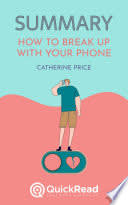
How to Break Up with Your Phone
Catherine Price
A practical guide to developing healthier relationships with digital devices. Price offers actionable strategies for reducing smartphone dependency and reclaiming personal time. The book provides step-by-step approaches to managing digital consumption and improving mental health. It empowers readers to create more intentional and balanced technological interactions.

The Cyber Effect
Mary Aiken
A forensic exploration of digital technology's psychological and social transformations. Aiken investigates how online environments reshape human behavior and psychological patterns. The book provides deep insights into the emerging field of cyberpsychology. It offers critical analysis of technology's profound impacts on individual and collective experiences.
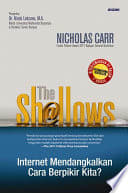
The Shallows
Nicholas Carr
An exploration of how internet usage fundamentally changes cognitive processes and attention spans. Carr investigates the neurological impacts of constant digital stimulation on human thinking and learning. The book argues that digital technologies are reshaping our mental capabilities and intellectual engagement. It provides a critical perspective on the cognitive consequences of our digital environment.
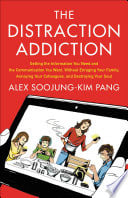
The Distraction Addiction
Alex Soojung-Kim Pang
A comprehensive analysis of how digital technologies create persistent cognitive interruptions. Pang explores the psychological mechanisms of digital distraction and its impact on productivity and mental well-being. The book provides strategies for managing technological interruptions and creating more focused work environments. It offers practical insights into maintaining cognitive control in a hyper-connected world.
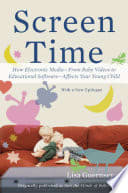
Screen Time
Lisa Guernsey
A comprehensive examination of digital media's impact on child development. Guernsey provides nuanced insights into how screen technologies affect learning and psychological growth. The book offers balanced perspectives on managing children's digital experiences. It helps parents and educators understand the complex interactions between technology and developmental processes.
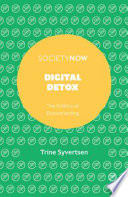
Social Media Detox
Trine Syvertsen
A practical guide to understanding and managing digital dependency. Syvertsen explores the psychological motivations behind social media usage and strategies for healthy digital consumption. The book offers insights into breaking addictive digital patterns and reclaiming personal time and attention. It provides actionable strategies for creating more balanced technological interactions.
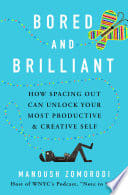
Bored and Brilliant
Manoush Zomorodi
An investigation into the creative and psychological value of boredom in the digital age. Zomorodi explores how constant digital stimulation undermines creativity and personal reflection. The book offers strategies for reclaiming mental space and fostering innovative thinking. It provides compelling arguments for embracing moments of technological disengagement.
No account connected — sign in to comment.
